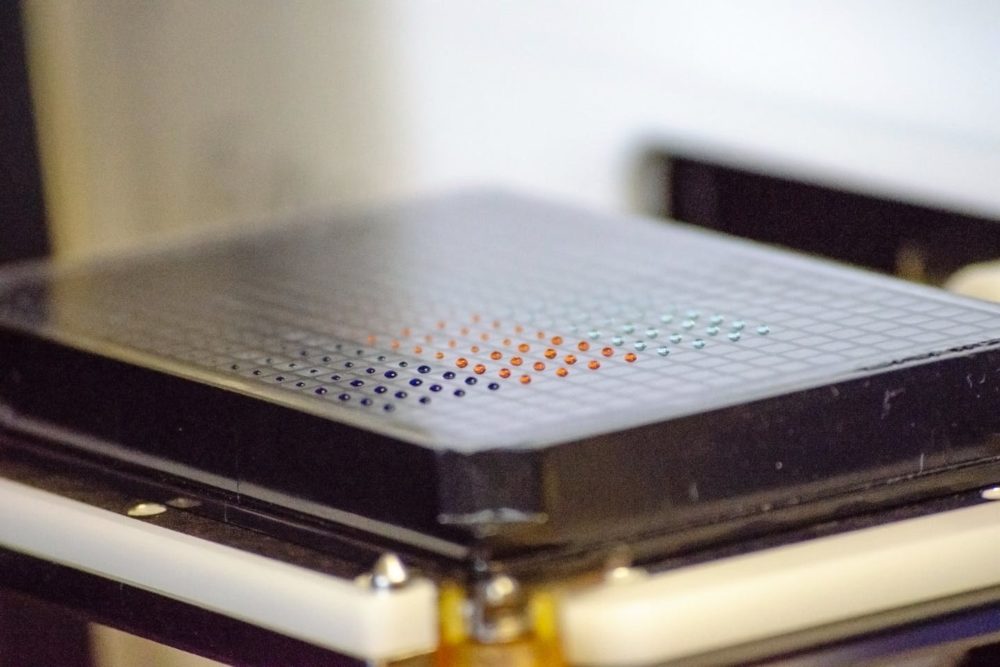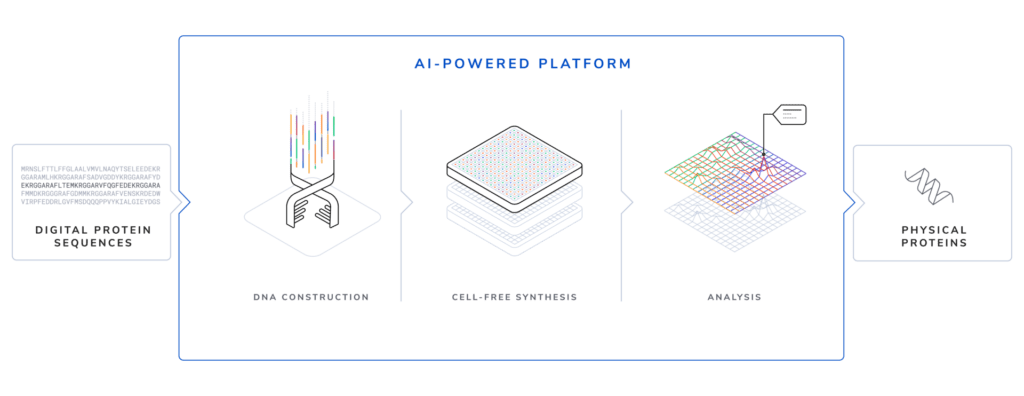Synthetic biology company Tierra Biosciences has officially launched its “proteins-on-demand” e-commerce portal where synbio scientists and researchers get custom proteins synthesized, validated, and shipped to them via a single interface.
The San Leandro, California-based company says its platform provides a more efficient and standardized way to source proteins versus traditional methods and takes weeks rather than years.
On background:
Zachary Sun, co-founder and chief science officer of Tierra, explains to AFN that today we use cells to make proteins. But cell walls limit the components’ ability to move in and out of the cell, which causes lots of unpredictability and can also lead to toxicity.
“Cell-free biology,” while a broad term, is simply removing that cell wall and using the active material behind it to do biological processes. This can generate biochemical reactions in a fraction of the time it takes a more traditional method like fermentation to do the same thing.
Keeping cells alive is a challenge with fermentation, which is why scalability can be an issue. Taking protein-synthesizing elements out of living bacteria eliminates their reliance on those organisms and can lead to greater efficiency and standardization when it comes to manufacturing. This in turn can greatly speed up innovation in everything from drug discovery to novel ingredients in food items.
How it works:
With Tierra’s platform, scientists move from digital protein sequences to experiment-ready physical proteins in just a few weeks, according to Sun.
- Customers can enter up to 10,000 digital protein sequences into an online ordering portal. Tierra’s proprietary AI system then analyzes each sequence to assess whether the proteins contain regions incompatible (eg, too complex) with the manufacturing system.
- The company’s in-house, cell-free manufacturing system then synthesizes the digital protein sequences to purify them. Tierra ships the final proteins back to the customer, who can immediately use them for experimentation.
Why it matters:
As the impacts of climate change increase and companies come under pressure to find more sustainable alternatives for food and farming, a platform like Tierra’s could greatly expand companies’ abilities to produce more sustainable ingredients at scale in a short timeframe.
The above process essentially provides the scientific building blocks scientists and researchers rely on in the initial phases of experimentation, and could literally shave years off the process of discovering, say, a novel functional ingredient for an alternative protein product. The automation component of Tierra’s system can also validate protein sequences much more efficiently than would be possible through the usual trial-and-error methods of the past.
Taken together, all of this means a faster and more standardized way of sourcing proteins for research and development.
By way of example, Tierra’s Corinna Chen says an alternative protein company could use the platform to validate ways of creating a plant-based, binding-like component similar to the one found in animal eggs. Instead of spending potentially years creating the protein, companies would let Tierra handle this heavy lifting and go straight to making the food additive.
Competitive landscape:
There are a few synbio companies working on synthetically manufacturing proteins at scale for food using various processes including Motif FoodWorks, AirProtein, Culture Biosciences, and even some brands like The Every Company and Nature’s Fynd. But most of these focus on microbe-based fermentation technologies.
Debut Biotech is at least one other company adopting the same cell-free approach as Tierra. Last year it closed over $20 million in Series A funding. By comparison, Tierra has disclosed just $2.6 million in seed funding to-date.
What they’re saying:
“We believe this will significantly lower the barrier-to-entry for protein synthesis, thereby enabling researchers and moving the synthetic biology field forward,” Sun said in the official news release.
Speaking to AFN, he likens what his company does to a needle in a haystack: “Biology is so complex that we can’t get rid of the haystack. That would be an all-knowing AI at this point. We also know that teams spend years looking for the needle. What we’re doing may enable others to find a needle in days and weeks rather [than] years because the hard work is in actually making all the variants. Maybe what we do is help companies not only find a needle in the haystack faster, but we help them find several needles.”






